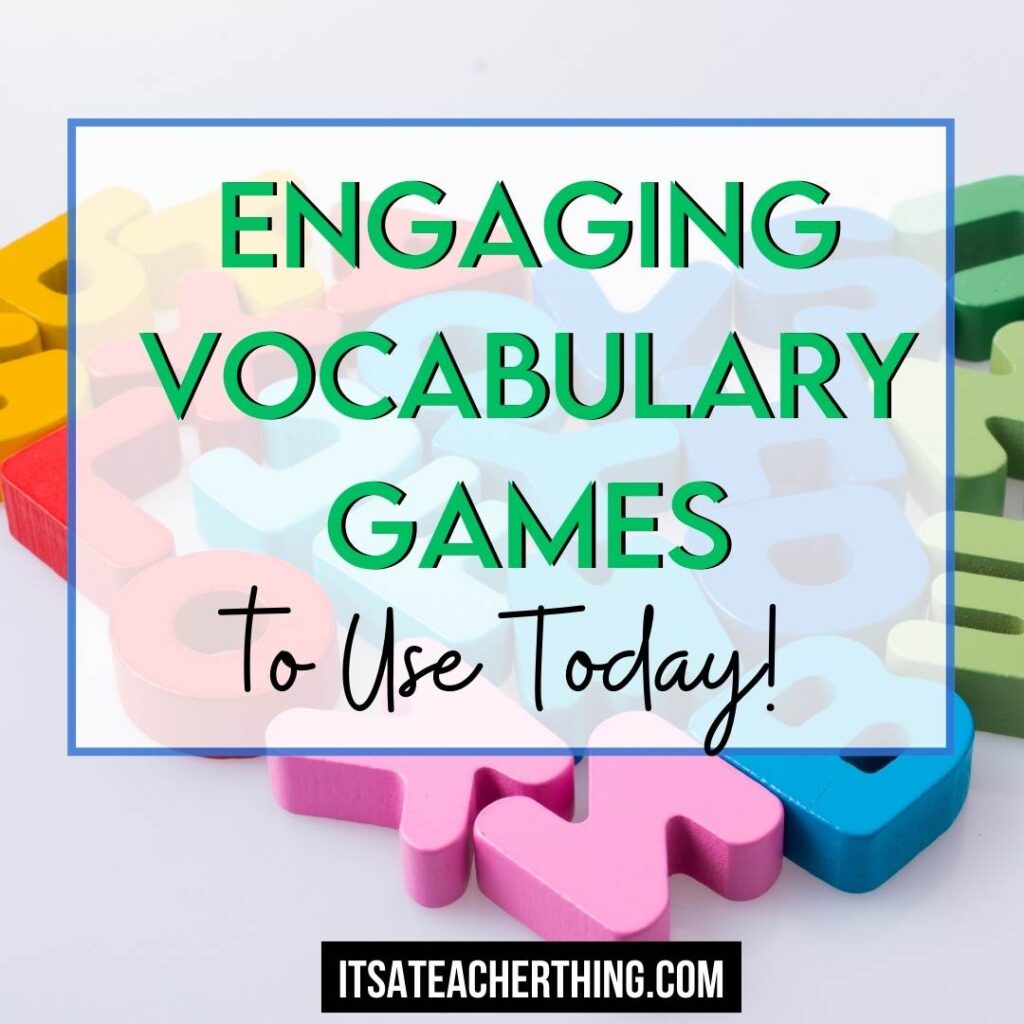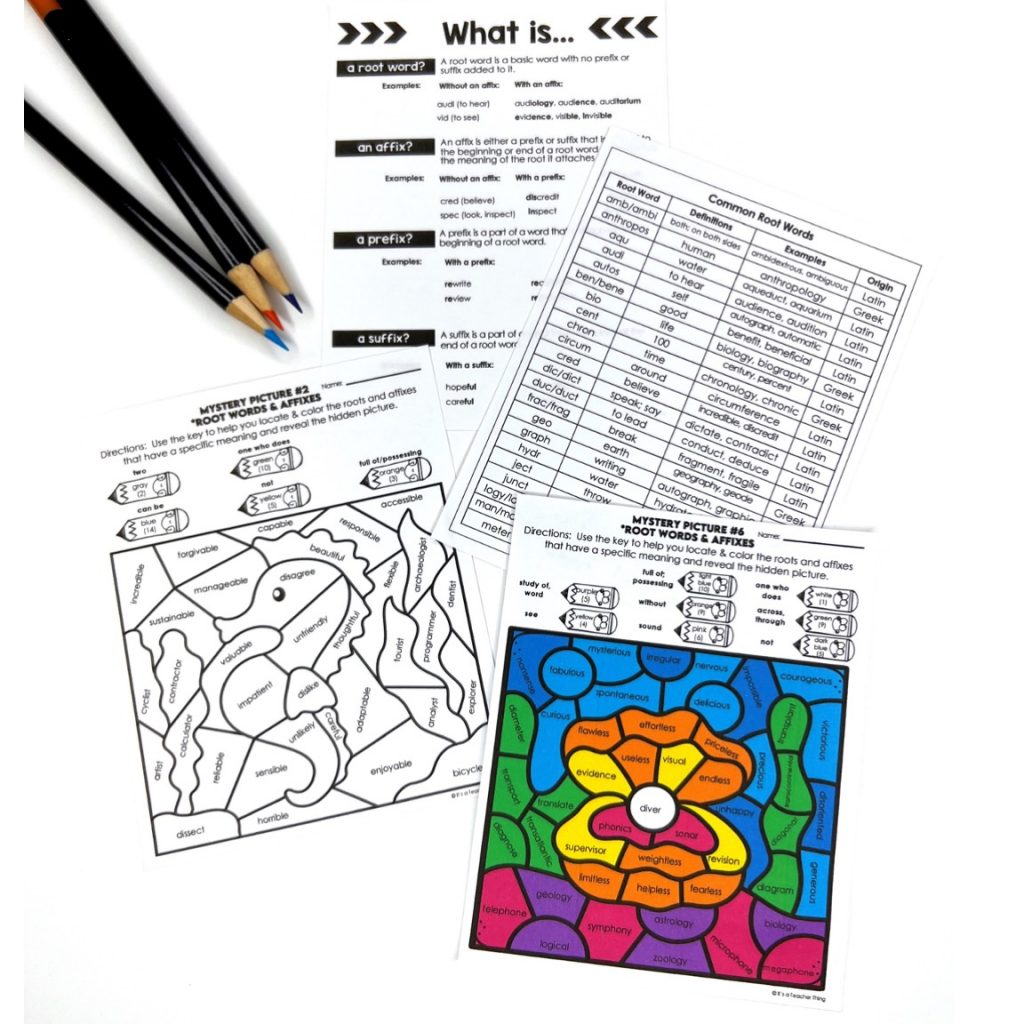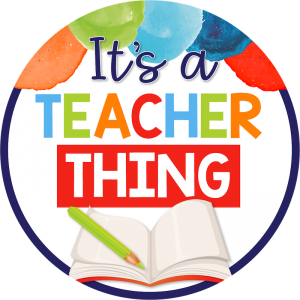Vocabulary games are a great addition to your vocabulary activities. Games are a fantastic way to have students practice and review vocabulary in any subject area. Learn some favorite ways to review vocabulary, whether it’s in a content area or root and affixes.

Engaging Vocabulary Games
Zip Around
Zip Around (also known as “I Have…Who Has”). This game is versatile and easy to create. You can either use strips of paper with one clue leading to the next answer or create cards. I find cards are great for whole-class review and the slips are great for small group and partner review.
Zip Up Vocabulary Games
This activity is great for roots and affixes or specific vocabulary you’d like students to review. It’s ideal for individual or partner work. You need an answer mat with as many rectangular spots as slips of clue papers you have. Create a question. The answer to this question and is on the left side of the next paper slip, which also contains the next question. This then leads to an answer on another slip that in turn has the next question.

Charades
You can create cards with the words students you want students to act out. These can be roots, content area words, famous people or places, history terms, etc. Very low prep as all you need to do is create cards with the target words on them.
Pictionary
As with Charades, you create the cards but this time it’s for the items you want students to draw. Set a timer, pick teams or do this with the whole class. Challenge: Have students create the words on the cards. They then become the sketcher for their word. (Just remember to check the words beforehand.)
As with all activities, it’s great to have an Early Finisher Activity. Check out these fun Root Word Color By Number activities. They’re done for you, so you save valuable time!

Quick List Vocabulary Games
This game is best done in teams. Put a root word on the board and cover it. Set a timer (1 or 2 minutes…perhaps more depending on the root). When you reveal the root, groups have a certain amount of time to come up with words that contain the root. When the timer goes off, groups can not add any other words.
1 member from each group then reads their words OR the teacher shows each groups’ list and as a class you determine if words are correct or incorrect. For example, if you’ve chosen the prefix re- as the game affix, “reread, rewrite, review” all work, but the word “read” does not because in this word re- is not a prefix. Read this blog post that covers even more vocabulary activities you can use today!
Scattergories
Scattergories is a game you can purchase. It combines the critical thinking of using categories with word knowledge and beginning sounds. Students list words beginning with a specific letter in a give category. Points are earned for only the words that no one else lists.
In the classroom, it’s easy to create a page or 1/2 sheet with the alphabet running down the left side, or even a full page with 4 lists of the alphabet so that each side of a page is good for 4 games.
Instead of using the categories provided in the game, create your own using an important category in your content area. For example, “Ancient Greece” could be a category. Students would then list all the words related to Ancient Greece, but only 1 per letter of the alphabet.
Grab this free root word bingo activity here to add to your vocabulary games.
Make a Word
Buy dice with erasable sides. I found some at the Dollar Store. Label the die with prefixes on one, roots on another, and suffixes on a third. Create small groups. Students each have a piece of paper with each group members’ name. One student rolls either all 3 dice at once or 1 at a time. Whatever lands upright is what the student needs to combine.
All students in the group write down the word under the creator’s name. After each student rolls a specified number of times, students vote on the best word or words in their group. They then need to make up a definition for the word. You can share these with the whole class or use them as a morning activity for students to create a meaning.
Guess It
This is a version of Hangman, but it doesn’t take as long. Select a word that relevant to the content (or perhaps do this as an Into activity for a unit). Draw the number of blanks on the board that corresponds to the number of letters in the word. Divide the class into groups (ideally 5-7 groups). Each group guesses at the first letter in the word. Once a correct letter is guessed, write it in the blank. Next, the focus is on the second blank. Students may not guess the entire word until you give the go ahead. I often don’t let them until there’s 1-2 blanks left.
This game is really about the logic of our language, and it provides the perfect platform to point out that we generally don’t have words starting with the letters CP—— because our language has certain rules. There are times when we just need a vowel. We have words beginning with 3 consonants, but none beginning with 4, and even those with 3 have rules, like spring. S-P- and then what follows? It’s not going to be a T or a V…
Vocabulary Bingo
This standby has a lot of learning miles, for sure. You choose the words and either create the page of have students copy words from a list you provide. This is great for content area words and for roots and prefixes. Find completed Root Word Bingo Activities here. All you’ll need to do is print and go!
Trashcan Basketball Vocabulary Games
Divide the class into 2 or 4 teams. Each team takes a turn answering a vocabulary question. If they answer correctly, the team gets 1 point. As a bonus, That team gets a ball (a crumpled piece of paper). If the team can thrown the “ball” into the trashcan, the team gets an extra point. Repeat this until all the vocabulary words have been used.
These easy-to-use vocabulary games are a great addition to your classroom and the low prep or no prep component will save you time!
Pin this to a relevant Pinterest board for later:



Leave a Reply